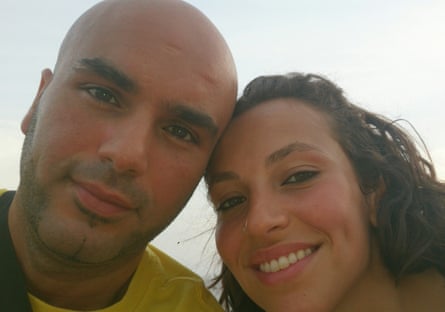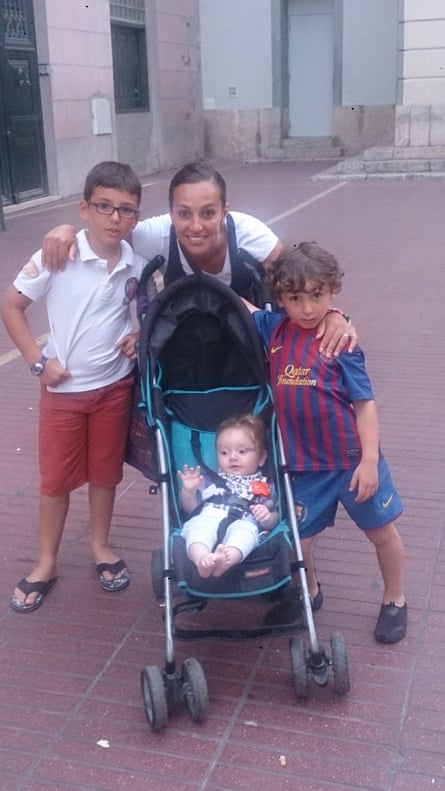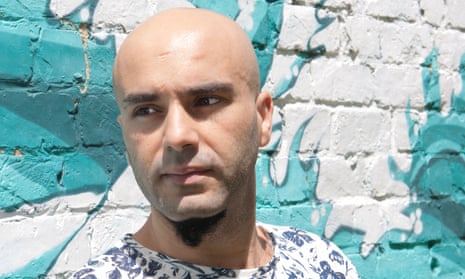On 22 March 2016, Loubna Lafquiri left her home in Molenbeek, Brussels, dropped off her three young sons and took the metro to neighbouring Schaerbeek, where the 34-year-old worked as a PE teacher. Her husband, Mohamed, a metro driver, had the day off and stayed at home. He was woken later that morning by a friend asking if he had heard from Loubna and explaining that there had been terrorist attacks at the airport and in the metro. Mohamed logged on to his messaging service and saw that Loubna had been offline since 9.10am. He knew instantly, he says. At 9.11am, Loubna and 15 other passengers were killed when suicide bomber Khalid El Bakraoui detonated an explosive device as the train they were travelling on left Maelbeek metro station.
The Guardian’s product and service reviews are independent and are in no way influenced by any advertiser or commercial initiative. We will earn a commission from the retailer if you buy something through an affiliate link. Learn more.
The attacks, in which 32 people died and hundreds were injured, seemed like a brutal confirmation of everything Brussels residents had been told over the previous two years: that the city – Molenbeek in particular – was a haven for terrorists. It was the culmination of a series of shocks, from the deadly attack on the Jewish museum in 2014 to the revelation that the Paris terrorists had planned and organised their atrocities here, five days of lockdown in December 2016 when the city authorities believed a deadly attack was imminent, and the white-knuckle manhunt for Salah Abdeslam, the sole survivor of the Paris terrorist cell, finally captured in Molenbeek.

I live in Brussels and for all its problems, many of us, accepted and welcomed here, felt it represented the triumph of multiculturalism; it was a city where everyone comes from somewhere else, but finds their place. This new atrocity felt like a defeat for that idea. We had been complacent. Something was terribly wrong in our adoptive home.
That feeling continued until, in late 2016, I watched a video that was being widely shared on social media. In it, in an interview with the Flemish TV channel VRT, Mohamed El Bachiri, Loubna Lafquiri’s husband, called for jihad. A jihad of love.
His words were extraordinary: calm, eloquent, extremely moving. He started by explaining that despite losing his wife in the attacks (“the love of my life, my friend, the mother of my children … a woman of incomparable beauty and infinite kindness”) – he was viewed by some “with this first name, these religious beliefs and the sad reputation of the area where I live” as a potential terrorist. Then he set out to describe his vision of Islam: open, accepting of difference, peace-loving and cultured.
Evoking Heraclitus and the Islamic philosopher Averroès (who translated Aristotle and was painted by Raphael in the Vatican), rejecting the literal interpretation of seventh-century Qur’anic texts and the notion of a “culture clash” between Islam and the west, Mohamed made an eloquent plea for openness, understanding and empathy. He emphasised his love of Belgium (he and Loubna were born in Brussels) and concluded with a poem, Allahu Akbar, both a homage to his wife and a call for love and tolerance.
Mohamed’s speech quickly racked up 10m views on YouTube. His speech was expanded into a TED Talk and a movement of sorts developed around it – the hashtag #turntolove based on Mohamed’s “jihad of love” was used in the wake of the Westminster and London Bridge attacks. Like Brendan Cox, widow of the murdered MP Jo Cox, and Antoine Leiris, whose wife died in the Bataclan attack in Paris, he has become a figurehead, a man whose own life has been shattered by an act of barbarism, but who chooses to turn his pain – using the platform that pain offers him – into a call for love and unity. For Brussels, it was the balm the city needed: a confirmation that for the vast majority of its residents, openness, tolerance and understanding were still shared, cherished principles.
Now Mohamed El Bachiri’s words have become a book, A Jihad for Love. “I wanted to reclaim the term jihad, I wanted it to be subversive,” he explains. We’re sitting in a bar by the canal, right on the frontier between the hipster heart of Brussels and Molenbeek; a symbol of the effortless cohabitation we took for granted. Men in djellabas, tattooed bartenders, families and gangs of kids enjoy the sun. He looks tired – his three-year-old has an ear infection – but is a passionate talker; his cappuccino goes cold and his muffin remains uneaten.

“Jihad, originally, means a personal effort. It can shock or scare, but I wanted to turn it around to its most true and noble meaning. Allahu Akbar scares people, too. When you hear someone shout ‘Allahu Akbar’, the only thing you want to do is run away, that’s the sad truth. I wanted to take back Allahu Akbar.”
He is not sure how he managed to write the book – composed at night when his sons were in bed, in short, feverish bursts, on his phone. Mohamed left school without qualifications and had never tried to write. Yet this slight volume of meditations on love and loss is always eloquent, by turn poetic, philosophical and autobiographical. It’s very sad but very hopeful: “An expression of suffering,” he calls it, “but also of resilience.”
It was important for him to write something short and accessible. “I wanted it to be simple, easy to read … I’m not a big reader,” he says. It is hard to believe, given the erudite references that fill the book and our talk, from Islamic history to Aristotle, the Valladolid debate and Voltaire’s admiration for British tolerance. His target audience is young people: he first developed his jihad of love idea at an iftar meal for Molenbeek youth. “Lots of young people here are frustrated. There are [those] who are looking for meaning, who want to fight, in some way. They are the real challenge. These ideologies can seduce people who are victims of social poverty, but also of spiritual poverty. We haven’t given the young the tools, the means to express their frustration and anger.”
Culture as an outlet and a way to channel emotion is a recurring theme in his book. “Encouraging young people to explore art and culture is so important. It’s good for them to learn about culture, to learn how to talk about love.” Passionate about the classics, Mohamed believes The Odyssey and The Iliad should be taught in primary schools: “They are magnificent and they have a moral at the end. Yes, The Iliad is about war … but when you confront death, you confront the essentials, the questions you don’t ask yourself in daily life. The Odyssey is a quest for harmony after war.”
He is a firm believer in the practical power of philosophy, and also a music lover, devoted to the pacifist protest singers of the 60s and 70s. “And I loved that Gallagher brothers song Don’t Look Back in Anger. Even though they really don’t like each other now!”
The book is full of art and wisdom, but is also, inevitably, a testament to pain and loss. The fragments describing Mohamed’s grief, his night terrors and insomnia, or the unbearable task of explaining to three little boys what has happened to their mother, give the philosophical sections far greater power: it is no abstract treatise on tolerance and understanding. “It was hard to share that, to set out my suffering. I’m quite reserved. But it is important to know who is writing.”
Part of that is bringing Loubna – by all accounts an exceptional, warm and fun-loving woman, who devoted her free time to encouraging isolated Muslim women and their children out into the world through sport – to life. There are touching glimpses of their relationship, from their first date and the challenges of early cohabitation after they were married to jokes they played on one another, but there is an entirely understandable sense that Mohamed wants to keep most of their story private. He is happier emphasising the legacy he hopes the book will bring Loubna. “She is Helen of Troy, but rather than spreading war, she spreads love and that’s what I really hope.”
Some of the saddest, loveliest passages describe his sons – Ayman, 10, Camil, eight, and Shahine, three – angry, lost and sometimes struggling to take on board their father’s message of love and forgiveness. “To them, life is just stupid. A mother who says goodbye, gives them a kiss and goes to work, and after that no more Mama. They don’t get it.” How do you deal with three lost boys for whom an abstract call to love is cold consolation when their mother is gone?
“With Loubna, we protected them from the start. They didn’t watch the news, but what happened to us showed them a reality they did not know, a violence they didn’t know.”
He has tried to be consistent and honest. “I tell them we’re all brothers in humanity; they say, but are terrorists brothers in humanity? Yes, but they have chosen a dramatic, criminal path. We could react like them and call for violence but that would be sinking to their level. The best way is simply to speak from the heart, speak truthfully, speak love.”
They have had a tough year, he says, and things are still very difficult. Holidays and celebrations are especially hard. “I couldn’t even do Father’s Day, I didn’t have the heart for it.” The youngest wants to be held a lot; he needs physical affection. The older boys have different but equally pressing needs. “They are my absolute priority.”
Becoming a source of hope and comfort for so many is a satisfaction, but also profoundly difficult: opening up personal grief to public scrutiny brings new kinds of pain. His speeches and TV appearances, even this interview, are a personal effort, that original definition of jihad. “I wasn’t destined for this, for writing and appearing in front of cameras. It’s a jihad, a real struggle to deliver this message of love.”
Mohamed stopped working on the metro after Loubna died and isn’t writing currently: “I might come back to it, or not. The children keep me busy.”
The future is difficult to imagine. “There is no perspective,” he says, without self-pity. Given his love of the classics, it’s no surprise he turns to The Odyssey to describe how life feels now. He is the captain of a little boat: “With three crew members on an ocean of sorrow.” They are facing the unknown, searching for something. “It’s a quest for harmony, but where, what, how …”
